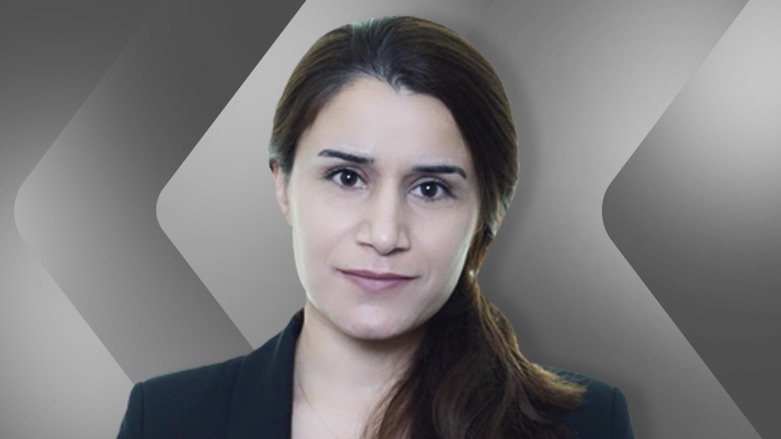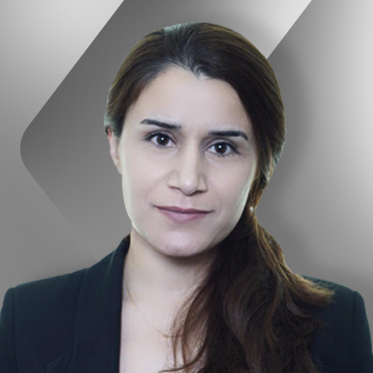The Kurdistan Region holds elections but lacks key institutions of the rule of law

Recent years have turned out to be very challenging ones for the people and the government of the Kurdistan Region. They both have had to deal with a series of political and economic crises alongside an ongoing war against the Islamic State. The implications of these crises have once again underlined an urgent need for serious reform in all sectors of the government.
Of these, perhaps the most crucial of all is revamping the legal system that is tasked with ensuring the supremacy of, and accountability to, the rule of law.
The region might well be in transition toward democracy, yet democracy won’t survive without the rule of law and its institutions. Just as democracy is not exclusively about elections, the rule of law is not a simple set of formal and procedural requirements of the proper enactment of legislation; even Iraq’s former Baath regime could meet such a standard.
In general, a society considered under the rule of law is often described as one where everyone in it is bound by law and where the power of government and political leaders are constrained by law; where both its form and content complies with ideals of democracy and fundamental rights and where an independent judiciary protects those rights and follows the constitution.
Kurdistan lacks some fundamental institutions that protect and uphold the rule of law: a ratified constitution, a constitutional court, and even a higher chamber of parliament.
Many would say that constitutions in most new or emerging democracies, particularly in the Middle East, are little more than words on paper. However, the way constitutional crises are being handled in the Kurdistan Region in the past few years shows how the lack of a regional constitution has intensified power struggles and crises in the region.
Protracted issues regarding the post of regional president and a dysfunctional parliament that did not hold a session for two years are just a few of the more obvious constitutional crises that have threatened the existence of the political system.
In Kurdistan, the parliament is the highest legislative authority, the ministerial cabinet and regional presidency are the highest executive authority, and general courts of law represent the judicial authority. These three branches of government exercise power based on acts of parliament or executive orders.
Parliament, though, enacts legislation and the government then implements it without being bound by any superior principles or constitution. Therefore, a law is a law as long as it is passed by parliament, regardless of whether or not its actual content is at all constitutional.
Furthermore, much of the legislation and regulations applied in the region date back to the time of the Baath regime and either violate the Iraqi constitution or have been annulled by the federal Supreme Court. However, in the Kurdistan Region, it is the responsibility of the regional parliament to decide the validity of such outdated and now-unconstitutional laws.
Recently, there have been some attempts to file lawsuits with the federal Supreme Court in Baghdad that would challenge the constitutionality of legislation passed by the regional parliament. However, the court has no jurisdiction over regional law and has therefore refused to make rulings. The court simply doesn’t have judicial review power over legislation in Kurdistan.
The Kurdistan Region’s parliament is not immune to abuses of power and, in the absence of constitutional principles, laws can be changed easily and institutions might disappear or be reshaped in a matter of days. This doesn’t indicate the sovereignty of parliament, as it might seem. Instead, it is the sovereignty of governing political parties.
Thus, the enactment, amendment, and annulment of the current body of laws are at the mercy of political parties. Moreover, though parliament is technically the highest legislative authority in the region, lawmakers are still mostly unable or unwilling to hold the government accountable.
Even the most sovereign parliament, that in the UK, is bound by a set of unwritten fundamental constitutional principles. In recent decades, the nation’s Supreme Court has had the power to review acts of parliament and can decide upon their constitutionality.
Unfortunately, the Kurdistan Region is still a long way from a society about which one could say is governed by the rule of law.
When a government uses legislation as an instrument to govern and sees itself as above the law, it governs outside the “rule by law” or even “law enforcement.” Thus, authorities see themselves as having the power to create and execute laws when they want to shape the behavior of the people they are charged with representing.
Majida S. Ismael holds a Ph.D. in Public Law/Constitutional Law from the University of Liverpool, England.
The views expressed in this article are those of the author and do not necessarily reflect the position of Kurdistan 24.
Editing by John J. Catherine
